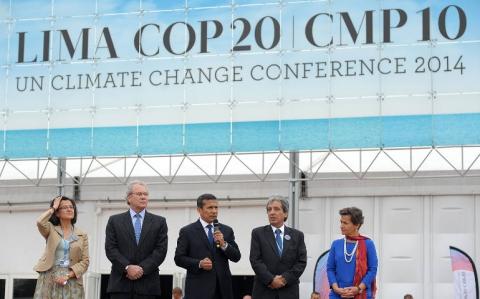Tackling climate change on a global scale – the COP 20 in Peru
Doing what works
A Rainforest Alliance delegation is presenting some of its work at COP 20 to reduce the impact of agriculture and forestry on the world’s climate, and increasing the sectors’ sustainability.
In Brazil, for example, the alliance has certified the first sustainable, deforestation-free cattle ranches and is promoting sustainable ranching. In the Andean Amazon it is demonstrating how different approaches can work together, from sustainable ranching in Colombia to commercial reforestation in Ecuador, to the sustainable harvest of timber and non-timber forest products, such as like palm fruit, in Peru.
These programs cut GHG emissions, protect Amazon forests and restore degraded land, and also improve agricultural productivity and the income and livelihood of rural producers that are feeling the impact of climate change directly.
Farmers at risk
People living on atolls and coastal flood zones aren’t the only ones displaced by climate change. Smallholder farmers, community foresters and others whose livelihoods depend on the land are also at risk. For example, climate change threatens coffee farmers’ way of life in Oaxaca, Mexico. Some farmers, such as Leandro Salinas, are retooling to grow climate-friendly coffee. In this video, Salinas says: “Even though we know we aren’t causing [climate change] – it’s others who are causing it – we, too, must do something.”
Farmers and foresters need finance, know-how and technology to cope with the impact of climate change. They also need incentives and viable alternatives to keep from clearing more forest for crops or timber. Without these things, deforestation is likely to increase, causing GHG emissions to rise.
The UN climate treaty process and the discussions under way in Lima recognizes this. The outcomes from COP 20 could include more support for regional and bilateral agreements, and for helping farmers and foresters work in sustainable, climate-smart ways. That could help lay the foundations for a global treaty in Paris at COP 21 to create a sustainable world economy.
Jeff Hayward

